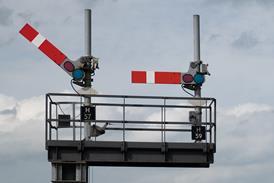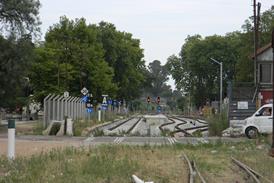EXPLOITING the latest yield management and quota control techniques to increase ticket revenue is gaining ground across Europe as more operators abandon distance-based fares. In the words of Tim Porter, Chief Executive Officer of Thales Information Systems, ’you can make more profit by selling the same thing that you do now - but there will be some pain’.
Porter was speaking at a conference on revenue management and pricing organised in London by Manugistics on January 17. With revenue management contracts for Eurostar, GNER and Midland Main Line already in place, Manugistics is keen to persuade other operators to follow suit - ’passenger rail is currently the number one key focus area for Manugistics in Europe’, said Andy Archer, Vice-President, European Operations.
GNER sees revenue management as an essential tool to drive up revenue over the 10-year life of its InterCity East Coast franchise, during which it is committed to pay premia to the UK government totalling £1·3bn. The system had gone live in June 2004, and Commercial Director Andrew Markham said that it had been instrumental in helping the company keep its franchise in April 2005. Pre-booked revenue per train had risen in both 2004 and 2005, and typical yields were now €160 to €75 in first class and €55 to €29 in standard. However, load factors were around 40%, which was ’quite low’ compared with airline figures of 60% to 80%, suggesting that there was plenty of scope to grow off-peak revenue. A key target was to persuade passengers to ’uptrade’ from standard to first class, which represented 20% of capacity.
The ability to impose ’train level restrictions’ on fares gives operators more control, said Manugistics’ Solution Consulting Director Peter Shearer. He drew attention to the complexity of the process as there was competition between markets on the same train, necessitating automation of quota controls as there were too many decisions to be taken manually. The aim was to produce ’an optimal price plan’ for every service, every day, until departure, he said. In time, revenue management will evolve from a tactical and operational tool to a more strategic role with input to timetables, staffing, budget forecasting and stock ordering for catering, he suggested.




















